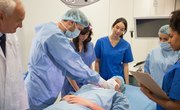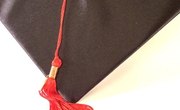The University of Virginia Medical School is a top-30 med school, according to the U.S. News and World Report in 2013. Located in Charlottesville, Virginia, the university states that it uses a "holistic review" process to select a diverse, high-achieving class. This process involves certain prerequisites and admission materials, though specific prerequisite coursework requirements are limited.
Coursework and Major
The University of Virginia is perhaps unique in that it does not require prerequisite courses in the sciences or humanities for students to be considered for admission. That being said, the university does state that students with preparation in biochemistry, cell biology, human behavior and statistics will be at an advantage during their courses at UVa. In addition, the university has no undergraduate major requirement, and roughly a third of each class majored in a humanities or social science field, not a natural science, in their undergraduate programs.
GPA and MCAT
The University of Virginia School of Medicine also lacks a definitive minimum GPA or MCAT score required for an application to be considered. It is clear from the school's admission stats, however, that the GPA and MCAT are important parts of an application. For the class of 2013, for example, the average GPA was 3.75. The average MCAT score was 11.63 for the biological sciences section, 11.79 for the physical sciences section and 10.73 for the verbal reasoning section.
Extracurriculars and Experience
When assessing an individual student, the University of Virginia School of Medicine looks for students who are authentic and ambitious. As such, extracurricular and volunteer experiences are important. While not required, medical or biological research experience is highly desired. In addition, working in the health field, such as by shadowing a doctor or working in an EMT organization, helps highlight a student's drive to enter the medical profession. Even a student's personal or family experiences with medical care are considered when evaluating applicants.
Letters of Recommendation
The final pieces of a student's application are the letters of recommendation. UVa prefers a letter from a medical school advisor at a student's undergraduate institution. If this is unavailable, two letters from science professors will suffice. The school prefers letters that have meaningful content that suggest how a student's prior experiences have prepared him or her to succeed in medical school.
Related Articles
References
Writer Bio
Kevin Wandrei has written extensively on higher education. His work has been published with Kaplan, Textbooks.com, and Shmoop, Inc., among others. He is currently pursuing a Master of Public Administration at Cornell University.











